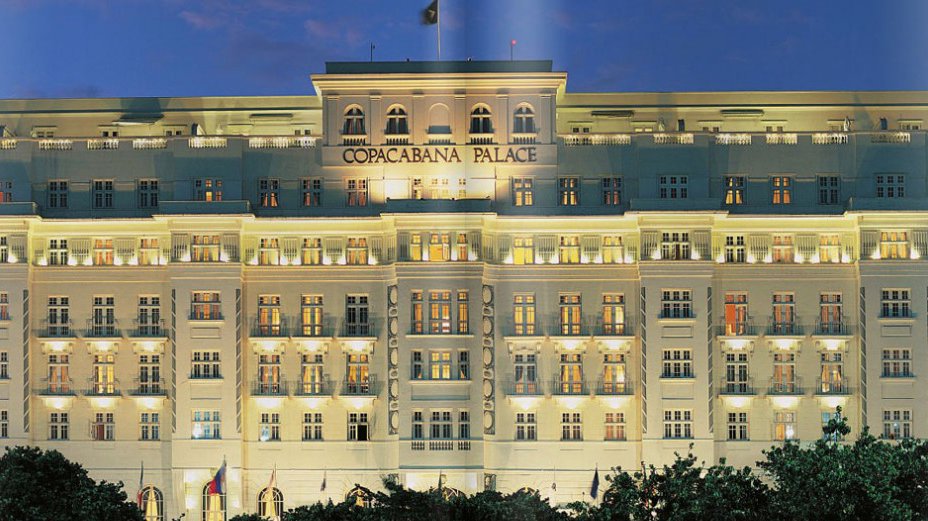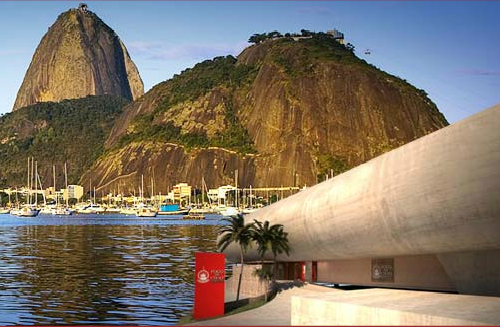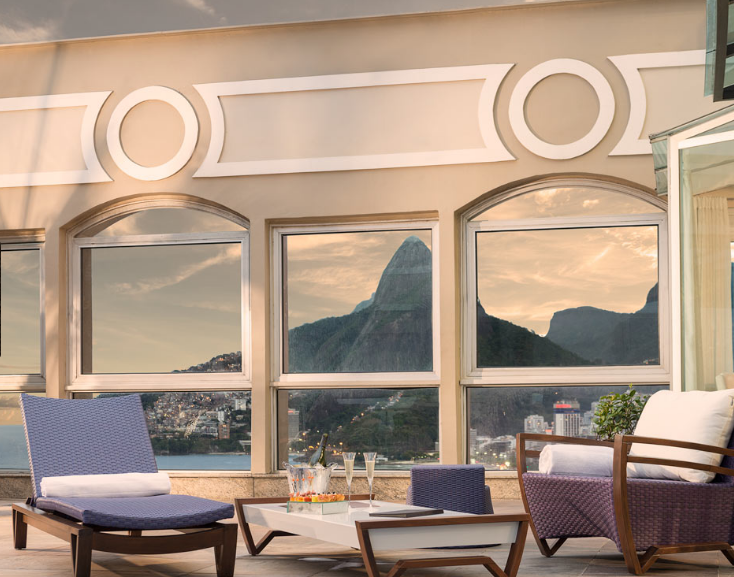
With the Rio Olympic Games behind us, Michelle Tchea asked a few local luxury establishments about their objectives during the event and how they fared in the frenzy. Editing by Daniela Aroche.
Belmond Copacabana Palace & Belmond Hotel das Cataratas
Cassiano Vitorino, Communications Manager & Belmond Copacabana Palace Andrea Natal, General Manager, Belmond Copacabana Palace
About:
Belmond Ltd. is a global collection of exceptional hotel and luxury travel adventures in some of the world’s most inspiring and enriching destinations. Established almost 40 years ago with the acquisition of Belmond Hotel Cipriani in Venice, the Company owns and operates 46 unique and distinctive hotel, rail and river cruise experiences in many of the world’s most celebrated destinations. From city landmarks to intimate resorts, the collection includes Belmond Grand Hotel Europe, St. Petersburg; Belmond Copacabana Palace, Rio de Janeiro; Belmond Maroma Resort & Spa, Riviera Maya; and Belmond El Encanto, Santa Barbara. Belmond also encompasses safaris, six luxury tourist trains including the Venice Simplon-Orient-Express, three river cruises and ‘21’, one of New York’s most storied restaurants.
Key objectives/goals to achieve during the Rio Games period:
Our main goal was to have 100% of event function room and rooms occupied.
Specific strategies and/or activations put in place to achieve objectives:
The hotel has been at 100% [occupancy] since 2013. However, we put initiatives in place during the Olympics to welcome the world to Rio.
Commenting on the initiatives, Belmond Copacabana Palace Andrea Natal, General Manager, Belmond Copacabana Palace, added: “We wanted to host a series of initiatives that engage with our guests, local community and welcome travellers from around the world to Rio, at a time when the city is at its most vibrant. Belmond Copacabana Palace is an important visual landmark and one of the most photographed buildings in the city, so we wanted to do something special with the facade that would create a wonderful lasting impression of the destination.”
From 31st July, visitors to the pool-side restaurant and Piano Bar, or spa were also treated to limited-edition ‘gold’, ‘silver’ and ‘bronze’ celebratory cocktails or spa treatments, during the Olympic Games.
Impact of the Olympics on the business and will the event help boost the Brazilian economy and luxury consumption in the region as a whole going forward?
Yes, it will definitely boost and promote Rio de Janeiro as never before. Rio’s natural beauty will fit very well at the broadcast and people will be interested to visit or come back to the city more often.
AC Hotel Rio de Janeiro Barra da Tijuca
Zachari Mateev, General Manager

About:
AC Hotels by Marriott is a lifestyle hotel brand conceived by Spanish hotelier Antonio Catalan that celebrates the beauty of classic modern design. AC Hotel Rio de Janeiro Barra da Tijuca is the first AC Hotel to open in Rio de Janeiro and is located in the modern neighborhood of Barra da Tijuca. The AC brand, with its European soul and Spanish roots, fits perfectly with the local Carioca culture. This 15 story sleek all glass façade hotel gives you a view that connects you to the surrounding natural wonders. The Hotel has 378 guest rooms and 9 meeting rooms with a total capacity for 500 people. AC Barra is nestled between the famous Pepe Beach and Avenida das Americas which is the principle boulevard of Barra da Tijuca and home to corporate offices, a variety of shopping malls and the best restaurants of Barra all of which are within a five minute drive, making this urban hotel unique with the excellent option of extending ones stay for a leisure weekend.
Key objectives/goals to achieve during the Rio Games period:
We have achieved our sales goals of having 100% occupancy at rates above yearly averages. The AC Hotels brand has been very well received in the Brazilian market, and it fits in very well with the local culture.
Specific strategies and/or activations put in place to achieve objectives:
As our principal clients are from all parts of the world, it is important that we cater to all their different needs. Everything at AC Hotels is done with intention, and aims to cater to the creativity and passions of travelers with a millennial mindset. Based on a belief that purposeful design improves lives, AC Hotels carves away what is unnecessary, in order to provide guests with thoughtfully designed moments of beauty; moments that elevate their stay and help them focus on what is important to them. That is why at all AC Hotels guests get only what they need, without paying for what they don’t. The result is sophisticated yet unpretentious style, innovative beverage and food programming and locally inspired experiences for both guests and locals.
Impact of the Olympics on the business and will the event help boost the Brazilian economy and luxury consumption in the region as a whole going forward?
Positive impact will certainly come post Olympics since billions of people will be able to see the natural wonders that Rio de Janeiro has to offer. This certainly will help our business and the local economy for many years to come.
Fogo de Chao Restaurant
Mr. Larry Johnson, Chief Executive Officer (2007 to Present)

About:
Fogo de Chao is one of the most popular restaurants in Brazil. Offering traditional Brazilian Churrascaria, affectionately known to tourists as Brazilian BBQ, the service and quality is unrivaled by other restaurants in Brazil. Starting in Sao Paulo in 1979, the restaurant chain has since grown to more than 30 locations in North America, Mexico and of course Brazil. Every Olympic athlete and Olympic family member will no doubt find themselves in Barra da Tijuca or Rio de Janeiro Fogo de Chao restaurant during the Games.
Key objectives/goals to achieve during the Rio Games period:
No doubt, this is a great opportunity for Fogo. In terms of traffic, we were cautiously optimistic and we did expect to be busy during the Olympics, especially with large groups. During the two quarters that included the World Cup in 2014 our comparable restaurant sales in Brazil were up more than 25% and 18%. While we didn’t anticipate the same results, in part because the World Cup covered more areas where we have restaurants, we recognized the potential for increased sales that comes with this type of event.
Specific strategies and/or activations put in place to achieve objectives:
To help inform those who might be traveling to Rio de Janeiro for the Olympics, or are simply interested in learning more about Brazil and all it has to offer, we created “The Fogo Guide to Brazilian Cuisine.” The Guide is an online destination that offers diners, travelers and churrasco enthusiasts alike an inside look into the expansive culinary landscape of South America’s largest country. The digital resource features regularly updated, original content across three key categories: food and drink; recipes and language and culture.
In terms of in-restaurant initiatives, we hired two new sales managers for our Rio restaurants, to ensure that we are prepared to capture potential increased traffic and group event opportunities throughout the Olympic Games. We also expanded our English language training for the teams at our Rio locations, to include vocabulary around key elements of the Olympics such as the various sports events, competing countries and event venues.
Impact of the Olympics on the business and will the event help boost the Brazilian economy and luxury consumption in the region as a whole going forward?
Yes! Our experience in Brazil, Mexico and the United States is that events like the Olympics, World Cup and Superbowl have a positive impact on our restaurants. There is both immediate and long-term benefit from the attention that this type of global event brings to our brand, including the significant opportunity to introduce new guests to the Fogo experience. However, we also believe that the event will influence our economy in a positive way.
Caesar Park Ipanema (managed by Sofitel)

About:
Caesar Park Ipanema is in the heart of Ipanema, offering a cosmopolitan, elegant and upbeat atmosphere. Caesar Park is recognized as one of the best places to stay in the world, accordingly to their website, for those seeking subtle luxury and constant comfort. Sofitel is the only French luxury hotel brand with presence on five continents with 121 addresses in more than 41 countries. The brand is accelerating its expansion in Latin America, the Middle East, Africa and Asia.
The Caesar Park Iapanema was opened in the 70s, however just three years ago was acquired by Sofitel.
Key objectives/goals to achieve during the Rio Games period:
This information is confidential.
Specific strategies and/or activations put in place to achieve objectives:
Caesar Park Ipanema prepared events for the guests and also for the Cariocas during Olympic Games, such as:
The rooftop bar of Caesar Park Ipanema managed by Sofitel, 23 Ocean Lounge, featured a different musical program with DJs and live music in a selection every Thursday, Friday and Saturday the bar. Designed to please both locals and foreigners, the agenda included a mix of Brazilian music groups, such as Noites do Norte and Bossa Nova Tropical , and also DJ Vivi Reis and DJ Pachu with international hits.
Additionally, in celebration of the Olympic Games, the hotels Caesar Park Ipanema managed by Sofitel, Sofitel Rio de Janeiro Copacabana and MGallery Santa Teresa, from the AccorHotels group, created together a special cocktail menu, introducing 8 eight exclusive creations.
At the restaurant – Galani – Caesar Park Ipanema managed by Sofitel restaurant made additions to its offering with creations executed by chef Wilians Halles, via a ‘Menu du Marché’.
A classic on the Parisian bistros with recipes that change every day, this menu has the purpose to value the freshest products on the market, giving priority to seasonal food and valuing the regional product. For his creations, chef Willians bet on the variety of typical products of Brazilian cuisine, which are the basis of his cuisine.
Impact of the Olympics on the business and will the event help boost the Brazilian economy and luxury consumption in the region as a whole going forward?
This information is confidential.










